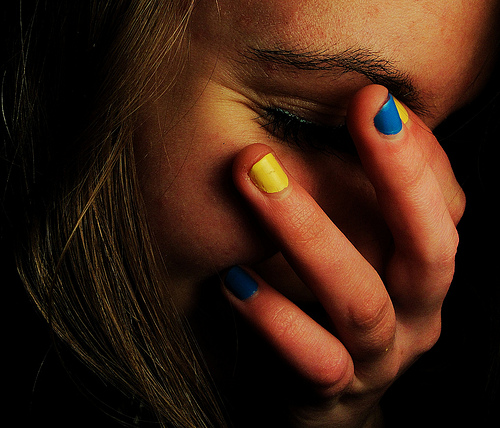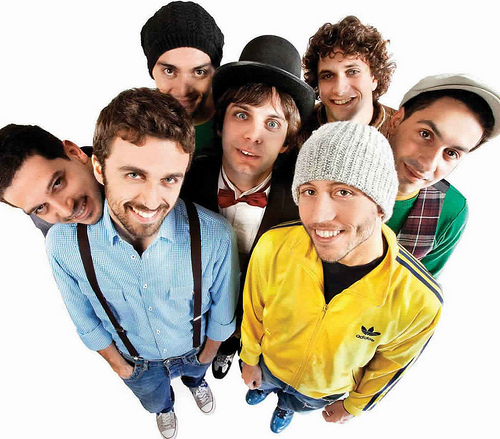 If opening your closet or meandering into your garage makes you feel like you’re suffocating, you are certainly not alone. Clutter plagues most all of us and yes, it can get to the point where it honestly feels like it’s crushing us to death.
If opening your closet or meandering into your garage makes you feel like you’re suffocating, you are certainly not alone. Clutter plagues most all of us and yes, it can get to the point where it honestly feels like it’s crushing us to death.
While we may not physically get bonked in the head with a wayward bowling ball we stuffed haphazardly on the top closet shelf, the clutter that packs our closets, our garages and our lives can indeed be damaging to our health.
Clutter’s Ill Effects
In addition to making us feel like we’re suffocating, clutter can be quite adept at marring our physical and mental health. A number of ill effects are pointed out the The New York Times and WebMD.
Effects on Physical Health
- Exacerbates allergies by inviting buildup of dust mites, dander, mold and other allergens
- Creates a germ haven
- Increases risk of fire and injuries with the things like the bowling ball rolling off the shelf
- Decreases odds of exercise (How can you go running when you can’t find your shoes?)
- Makes you late for work and appointments when you can’t find things
- Makes you fat, with organizational expert Peter Walsh finding a link between over-consumption of stuff and over-consumption of food
- Depletes your energy with its overwhelming presence
“As people start to control the clutter, they begin to take better care of themselves,” according to professional organizer Lynne Gilberg. That better self-care hits both the mental and physical levels, WebMD adds.
Effects on Mental Health
- Increases stress and anxiety
- Exacerbates symptoms of paruresis and other mental issues
- Blocks out new things from entering your life
- Strengthens procrastination
- Weakens decision-making skills, as you’re avoiding any decisions by letting all this stuff pile up
- Prevents living in the moment
“If you have so much stuff it drags you into the past or pulls you into the future, you can’t live in the present,” Walsh tells WebMD.
What Doesn’t Work
Buying loads of fancy bins with equally fancy labels to store all your clutter doesn’t cut to the root of the issue. It’s kind of like putting a fresh coat of paint on a house that’s crumbling at its foundation. Sure, your clutter may be more neatly organized and look really keen for a week or two, but you haven’t gotten rid of anything and you haven’t fixed the core of the problem. Rearranging a home does not repair the foundation.
“It isn’t a house problem,” Institute of Living anxiety disorder center director David Tolin told The New York Times. “It’s a person problem. The person needs to fundamentally change their behavior.”
What Does Work
Actually eliminating the built-up mounds of stuff is often an effective initial step in a solution that works, followed up by an ongoing organizational system that stops stuff from building up in the first place. This two-part remedy can help many of us stop the ongoing clutter craze that has invaded our lives.
And then there are the full-fledged hoarders. If you fall into the hoarder category, any amount of organization may only provide a short-term solution, the Times reports, although cognitive behavioral therapy can help provide a solution for the longer term.
As if suffering from paruresis is not enough of a pain, you may be saddled with what some mental health professionals call chronic disorganization. The condition has yet to merit an official diagnosis, although studies have been done on so-called hoarders that showed their brain’s functioned differently than other people’s when faced with eliminating clutter.
Dr. Tolin checked out brain scans of compulsive hoarders when the hoarders reviewed some of their possessions and had to decide if they were going to keep them or get rid of them. The ridding involved a shredder, making it clear the decision was final.
Tolin and his research team compared brain scans of hoarders and non-hoarders during the decision process and found massive activity in the area of the brain associated with decision-making and planning, aka the orbitofrontal cortex.
“That part of the brain seemed to be stressed to the max,” for hoarders, Tolin noted, while non-hoarders’ scans showed no such activity.
Another study noted by the times showed six months of cognitive behavioral therapy helped hoarders declutter significantly. This may mean therapy may also be effective for those shy of the hoarder category that are still chronically disorganized.
Why We Do It
While some from a previous generation may have turned to stockpiling clutter in response to living through the Great Depression, your own cluttering behavior may not seem to have such an obvious explanation. Zen Habits blogger Leo Babauta offers up some insights on to common reasons behind clutter accumulation. His top insight notes clutter may not be merely a pile of things but may instead serve as a stockpile of crutches that may fulfill a variety of needs.
“These crutches are convenient, because they save us from having to learn to cope with tough things,” Babauta writes. “We’ve relied on these crutches often since childhood, and our culture has programmed them into us.”
He additionally notes many folks get mad when he starts pointing out the crutches, the same way he became angry when he initially recognized some of the roles clutter played in his own life.
Clutter’s Many Roles
- Security
- Indication of self-worth
- Anchor that lets us cling to the past
- Comfort, especially when clutter is the spoils from shopping therapy
- Symbol of being loved
- Promise of self-improvement (You mean to read those self-help books one day)
- Promise of excitement (Have you used those new inline skates yet?)
One more role of clutter pointed out by the Times is as in indication of and underlying health issue. For instance, those who’ve suffered a brain injury or emotional trauma can honestly look at cleaning house as an impossible task. Disorganization can also stem from chronic pain, ongoing grief, ADHD and depression.
No matter why we do it, we can stop it, a move that can enhance our physical health, our mental well-being and our overall quality and enjoyment of life.
Coming Soon: How to Declutter Your Life to Improve Your Paruresis and Overall Health
SOURCES:




